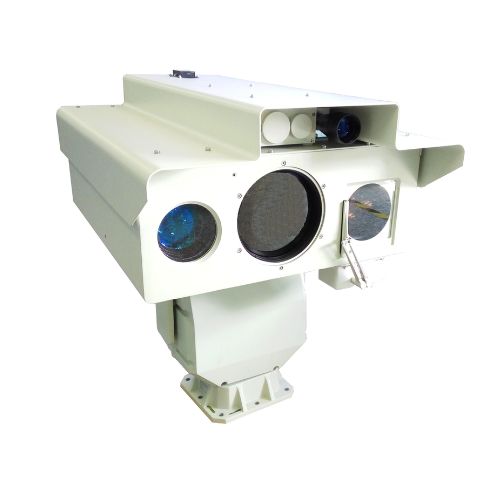Introduction Of IP camera
An IP camera is a digital video camera that receives control data and sends image data via an IP network. They are commonly used for surveillance, but, unlike analog closed-circuit television CCTV cameras, they require no local recording device, only a local area network. Most IP cameras are webcams, but the term IP camera or netcam usually applies only to those that can be directly accessed over a network connection.
Types of IP cameras
There are many different types of IP cameras available, each with its own set of features and capabilities. Some of the most common types include:
- Indoor IP cameras: These cameras are designed for use indoors, where they are protected from the elements. They typically have a lower price point than outdoor cameras.
- Outdoor IP cameras: These cameras are designed for use outdoors, where they are exposed to the elements. They typically have a higher price point than indoor cameras and may have features such as weatherproofing, vandalism resistance, and infrared night vision.
- IP cameras with IR night vision: These cameras can provide clear images in low-light or no-light conditions using infrared light.
- Multi-sensor IP cameras: These cameras have multiple sensors, such as a pan-tilt-zoom (PTZ) lens, a thermal sensor, or a microphone.
- Thermal IP cameras: These cameras can detect heat signatures, making them ideal for applications such as security and fire detection.
- Wireless IP cameras: These cameras transmit video over a wireless network, making them easy to install and move around.
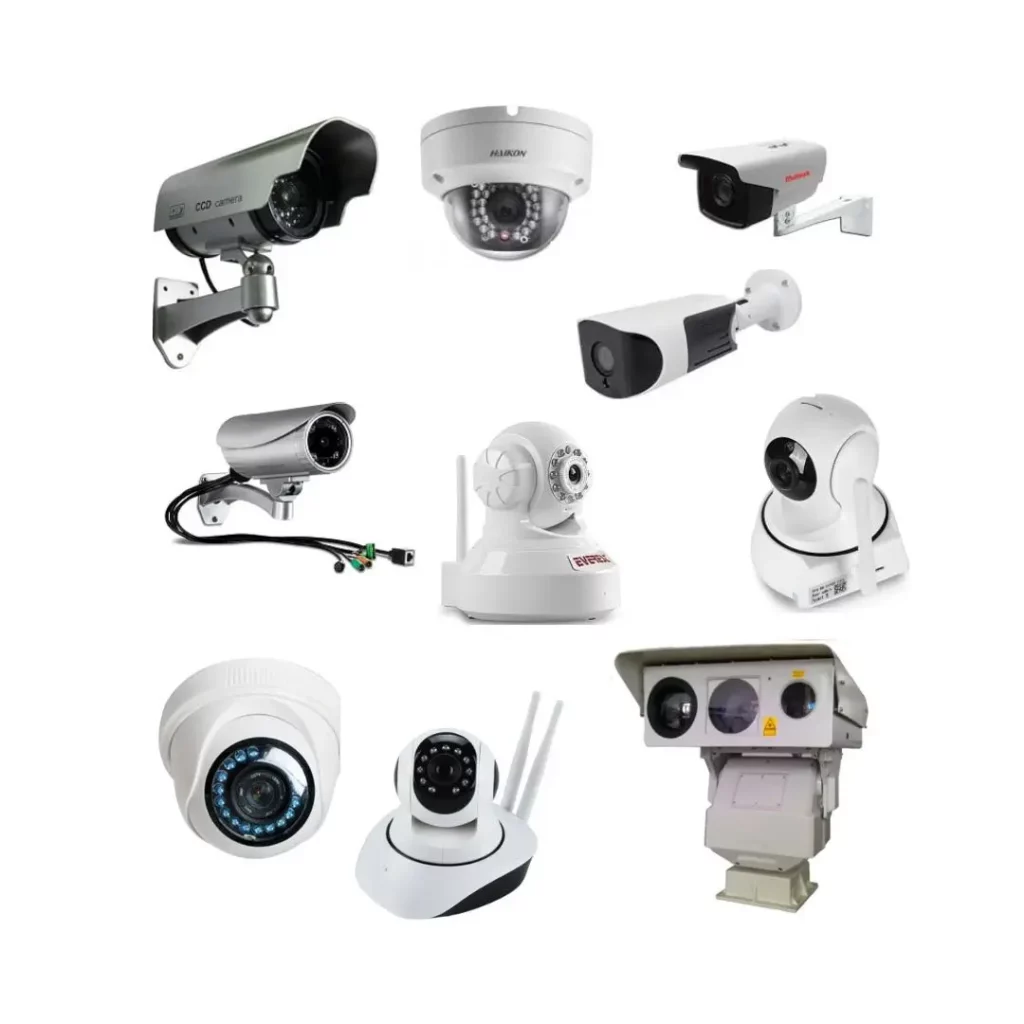
IP camera viewer
An IP camera viewer is a software application that allows you to view and manage IP cameras .An IP camera systems is a collection of IP cameras, a network video recorder (NVR), and software that allows you to view and manage the cameras. IP camera systems can be used for a variety of purposes, such as security, home automation, and business surveillance.. There are many different IP camera viewers available, both free and paid. Some of the most popular IP camera viewers include:
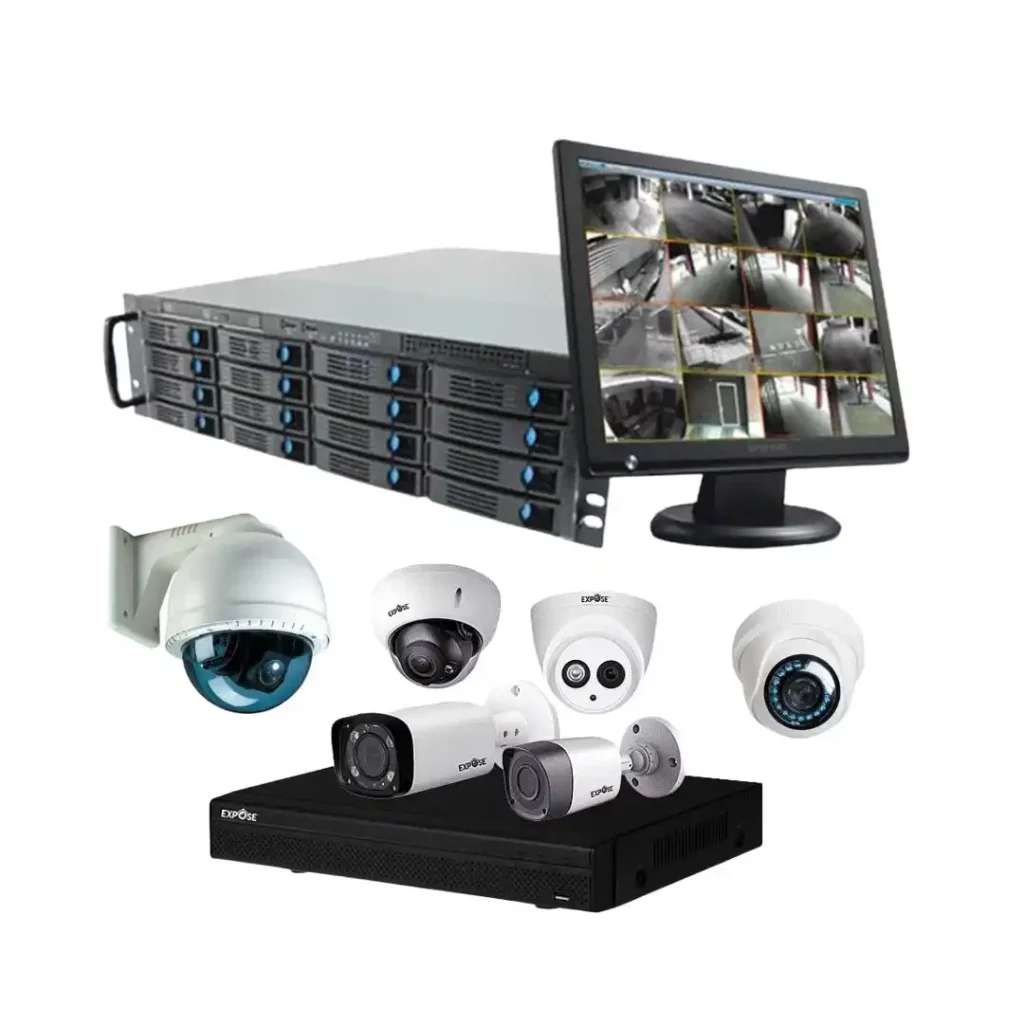
- Ivideon Viewer: This free IP camera viewer supports a wide range of IP cameras and can be used on Windows, Mac, and Linux computers.
- Manything: This paid IP camera viewer offers a variety of features, such as motion detection, cloud storage, and remote access.
- Blue Iris: This paid IP camera viewer is designed for professional use and offers a wide range of features and customization options.
IP camera app
IP camera app
There are also many IP camera apps available for smartphones and tablets. These apps allow you to view and manage IP cameras from your mobile device. Some of the most popular IP camera apps include:
- IP Cam Viewer Lite: This free IP camera app supports a wide range of IP cameras and can be used on iOS and Android devices.
- Alfred: This paid IP camera app offers a variety of features, such as motion detection, cloud storage, and remote access.
- HomeKit Secure Video: This IP camera app is designed for use with HomeKit-enabled devices and offers features such as motion detection, facial recognition, and iCloud storage.

IP camera Software
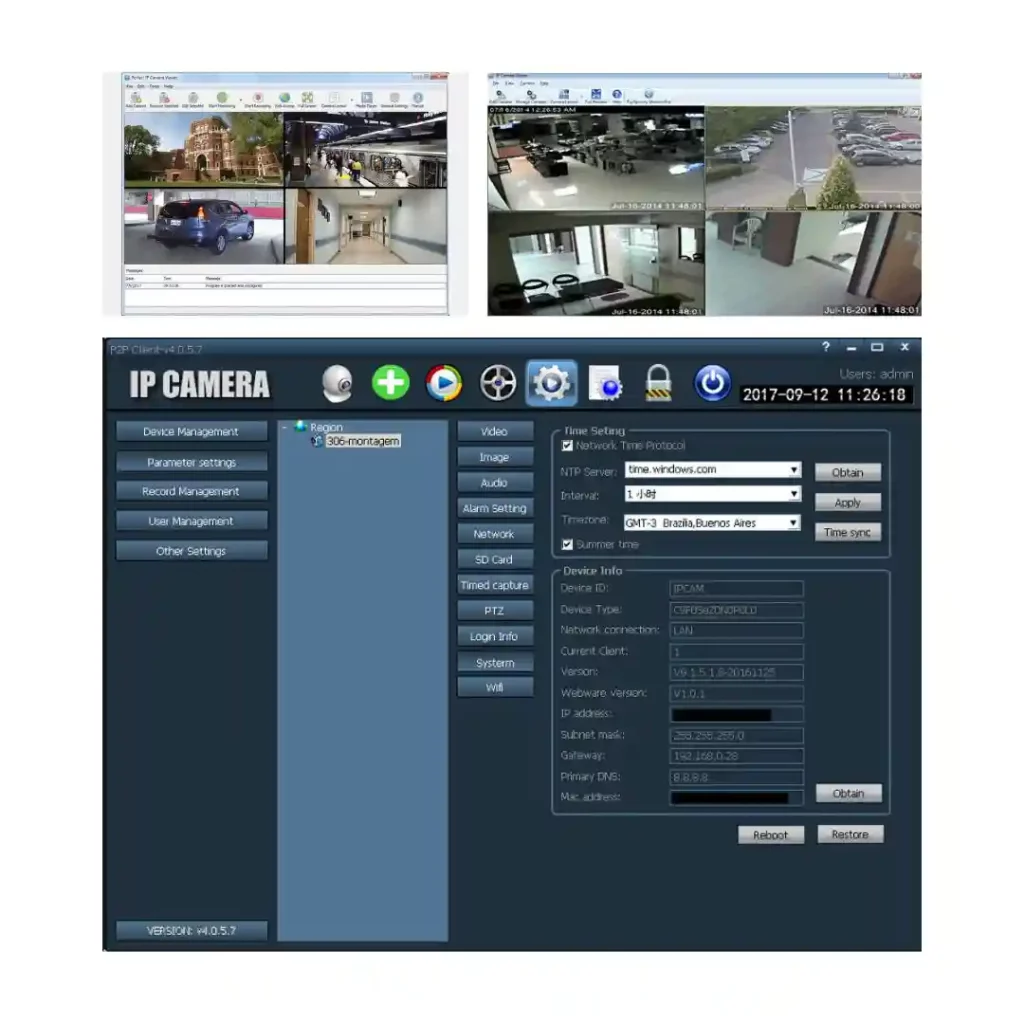
When choosing an IP camera software program, it is important to consider your needs and budget. If you are looking for a free and easy-to-use program, then Anycam or DeskShare IP Camera Viewer are good options. If you need a more powerful and feature-rich program, then iSpy or Blue Iris are good choices. If you are looking for a commercial program, then Milestone XProtect or Hikvision iVMS-4200 are good options.
Here are some of the factors to consider when choosing an IP camera software program:
- Features: The program should have the features that you need, such as the ability to monitor multiple cameras, record video, and send alerts.
- Ease of use: The program should be easy to use, even if you are not familiar with IP cameras.
- Price: The program should be affordable for your budget.
- Security: The program should be secure to protect your privacy and security.
- Support: The program should have good customer support in case you need help.
Indoor IP Camera
When choosing an indoor IP camera, it is important to consider the following factors:
- Video quality: The video quality of the camera should be high enough to be able to identify people and objects.
- Night vision: The camera should have night vision so that it can provide clear images in low-light conditions.
- Motion detection: The camera should have motion detection so that it can alert you when there is movement in the area.
- Two-way audio: The camera should have two-way audio so that you can communicate with people in the room.
- Storage: The camera should have enough storage space to store the video footage.
- Price: The price of the camera should be within your budget.
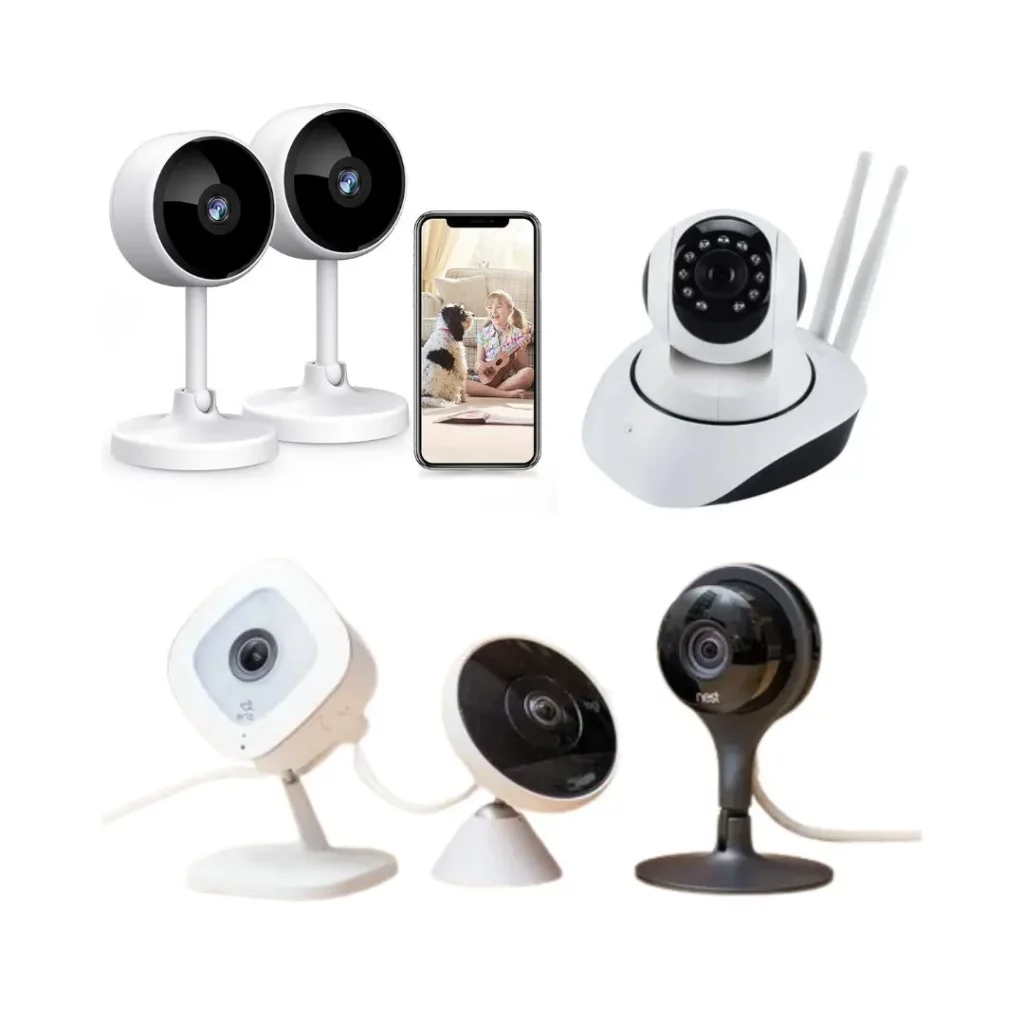
Outdoor IP Camera
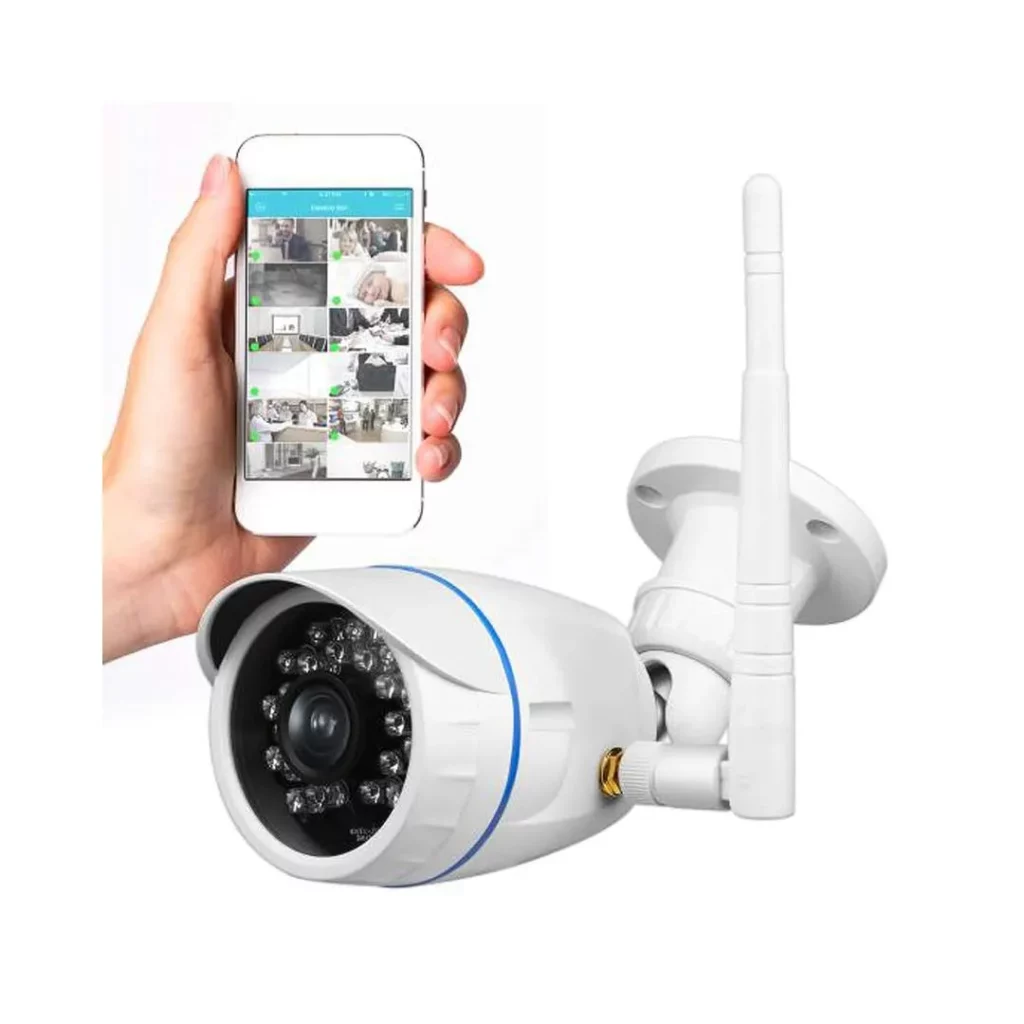
When choosing an outdoor IP camera, it is important to consider the following factors:
- Weatherproofness: The camera should be weatherproof so that it can withstand the elements.
- Vandal-resistance: The camera should be vandal-resistant so that it cannot be easily damaged.
- Video quality: The video quality of the camera should be high enough to be able to identify people and objects, even in low-light conditions.
- Night vision: The camera should have night vision so that it can provide clear images in low-light conditions.
- Motion detection: The camera should have motion detection so that it can alert you when there is movement in the area.
- Storage: The camera should have enough storage space to store the video footage.
- Price: The price of the camera should be within your budget.
IP camera with IR Night Vision
Here are some other factors to consider when choosing an IP camera with IR night vision:
- Brand: There are many different brands of IP cameras available, so it is important to do your research and choose a brand that you trust.
- Warranty: Most IP cameras come with a warranty, so be sure to check the terms and conditions of the warranty before you buy.
- Ease of installation: Some IP cameras are easier to install than others. If you are not comfortable installing the camera yourself, be sure to choose one that is easy to install.
- Customer support: If you have any problems with your IP camera, you will need to be able to get help from the manufacturer. Be sure to choose a camera from a manufacturer that offers good customer support.
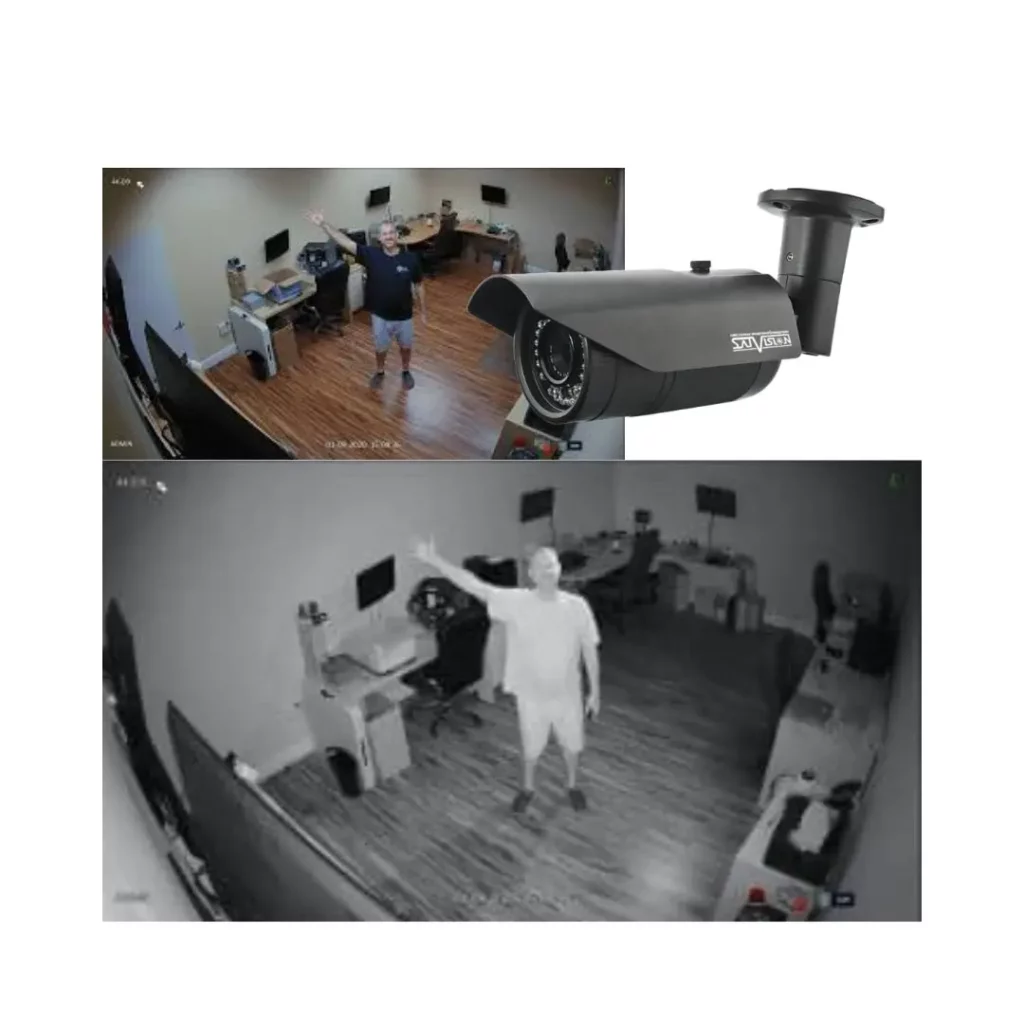
Multi Sensor IP cameras
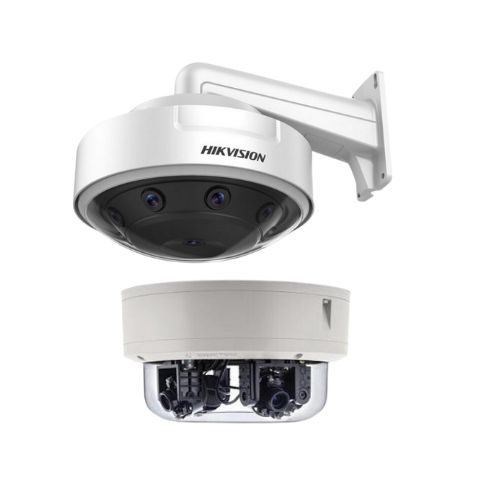
Multi-sensor IP cameras are a good option for applications where you need to monitor a wide area or where you need to be able to see multiple angles of the same area. They are also a good option for applications where you need to be able to identify objects or people in the scene.
Here are some of the benefits of using multi-sensor IP cameras:
- They can provide a wider field of view than a single-sensor camera.
- They can be used to create panoramic or 360-degree views.
- They can be used to identify objects or people in the scene.
- They can be used to track movement in the scene.
- They can be used to detect intrusions.
However, there are also some drawbacks to using multi-sensor IP cameras:
- They can be more expensive than single-sensor cameras.
- They can be more complex to install and configure.
- They can be more susceptible to interference from sunlight and other sources of light.
Overall, multi-sensor IP cameras can be a valuable tool for a variety of applications. However, it is important to consider the benefits and drawbacks before making a decision.
Thermal IP cameras
Thermal IP camera are a good option for applications where you need to monitor an area in low-light or no-light conditions. They are also a good option for applications where you need to detect heat signatures, such as for fire detection or wildlife monitoring.
Here are some of the benefits of using thermal IP cameras:
- They can see in complete darkness.
- They are not affected by light or glare.
- They can detect heat signatures, even through smoke and fog.
- They can be used for a variety of applications, such as fire detection, wildlife monitoring, and security.
However, there are also some drawbacks to using thermal IP cameras:
- They are more expensive than traditional IP cameras.
- They can produce grainy or blurry images.
- They can be difficult to use in bright conditions.
Overall, thermal IP cameras can be a valuable tool for a variety of applications. However, it is important to consider the benefits and drawbacks before making a decision.
